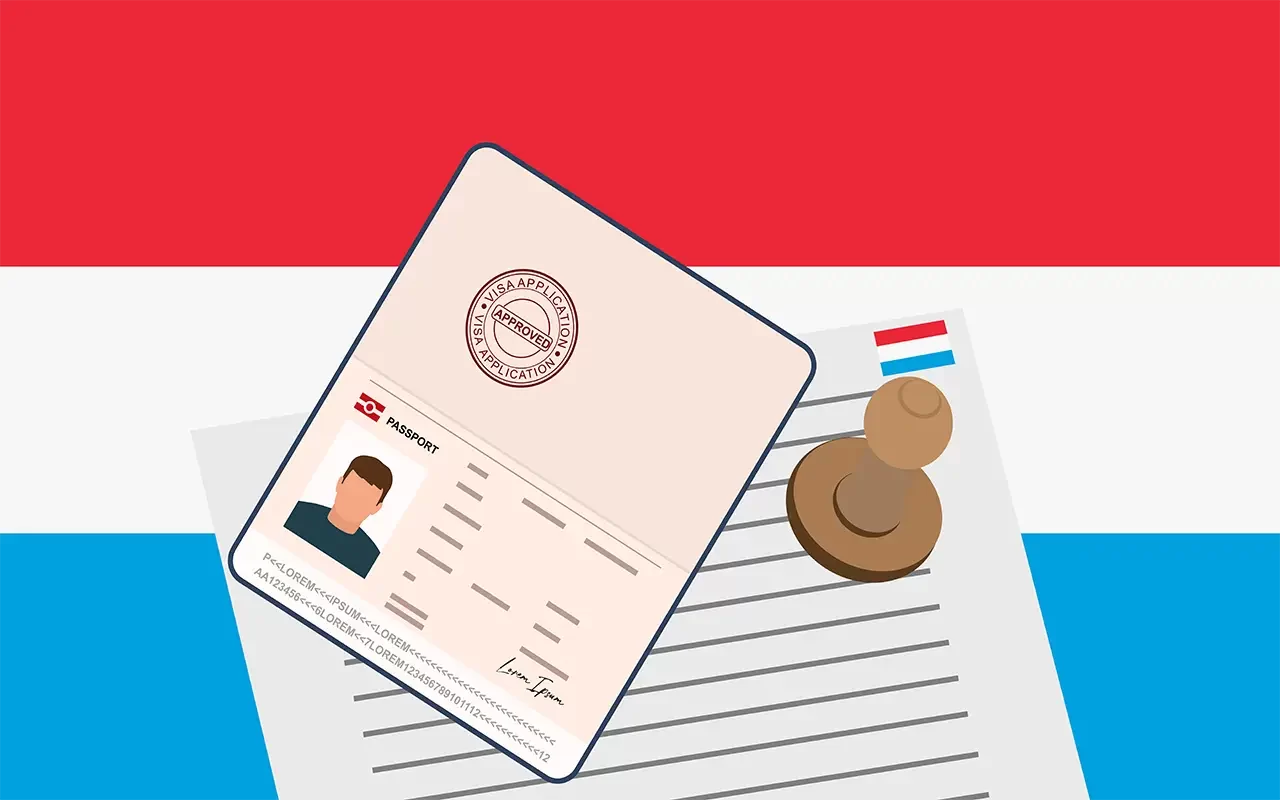
Table of Contents
Overview of Luxembourg
Located between France, Belgium and Germany, Luxembourg is a small, primarily French speaking country with a population of 626,000 people. In addition to its national language of Luxembourgish, Luxembourg recognizes French and German as official languages; its culture is a unique blend of both influences. One of the smallest countries in Europe in terms of both territory and population, over half of Luxembourgians are foreigners. Officially the Grand Dutchy of Luxembourg, the constitutional democracy retains a largely ceremonial royal family, headed by a Grand Duke. Luxembourg’s small territory and demographics belie its outsized international presence. Its capital Luxembourg City is one of just four official E.U. capitals, as well as the seat of the E.U.’s most important judicial branch: the European Union’s Court of Justice. Its fortifications and old quarters are a UNESCO Heritage Site, and a testament to the city’s history as one of Europe’s most expansive fortresses. With one of the highest GDPs per capita in the world, Luxembourg is also known as a banking center. Travelers to this small but significant country can enjoy its historic architecture, extensive forests and nature preserves, and unique Franco-German culture and cuisine. One of the five original signatories of the Schengen Agreement, in 1985, Luxembourg is also where the agreement was first signed (Schengen is a town in Luxembourg). A decade after signing the historic agreement, Luxembourg became one of the original territories in the Schengen area, in 1995.
Luxembourg Schengen Visa Eligibility
Schengen visa eligibility for Luxembourg includes third-country nationals from the following states, who are excluded from visa-free to Luxembourg/the Schengen area, and are therefore eligible to apply for a Schengen visa to Luxembourg:
|
1. AFGHANISTAN |
53. LAOS |
|
2. ALGERIA |
54. LEBANON |
|
3. ANGOLA |
55. LESOTHO |
|
4. ARMENIA |
56. LIBERIA |
|
5. AZERBAIJAN |
57. LIBYA |
|
6. BAHRAIN |
58. MADAGASCAR |
|
7. BANGLADESH |
59. MALAWI |
|
8. BELARUS |
60. MALDIVES |
|
9. BELIZE |
61. MALI |
|
10. BENIN |
62. MAURITANIA |
|
11. BHUTAN |
63. MONGOLIA |
|
12. BOLIVIA |
64. MOROCCO |
|
13. BOTSWANA |
65. MOZAMBIQUE |
|
14. BURKINA FASO |
66. NAMIBIA |
|
15. BURMA/MYANMAR |
67. NAURU |
|
16. BURUNDI |
68. NEPAL |
|
17. CAMBODIA |
69. NIGER |
|
18. CAMEROON |
70. NIGERIA |
|
19. CAPE VERDE |
71. NORTH KOREA |
|
20. CENTRAL AFRICAN REPUBLIC |
72. OMAN |
|
21. CHAD |
73. PAKISTAN |
|
22. CHINA |
74. PAPUA NEW GUINEA |
|
23. COMOROS |
75. PHILIPPINES |
|
24. CONGO |
76. QATAR |
|
25. COTE D’IVOIRE |
77. RUSSIA |
|
26. CUBA |
78. RWANDA |
|
27. DEMOCRATIC REPUBLIC OF CONGO |
79. SAO TOME AND PRINCIPE |
|
28. DJIBOUTI |
80. SAUDI ARABIA |
|
29. DOMINICAN REPUBLIC |
81. SENEGAL |
|
30. ECUADOR |
82. SIERRA LEONE |
|
31. EGYPT |
83. SOMALIA |
|
32. EQUATORIAL GUINEA |
84. SOUTH AFRICA |
|
33. ERITREA |
85. SOUTH SUDAN |
|
34. ETHIOPIA |
86. SRI LANKA |
|
35. FIJI |
87. SUDAN |
|
36. GABON |
88. SURINAME |
|
37. GAMBIA |
89. SWAZILAND |
|
38. GHANA |
90. SYRIA |
|
39. GUINEA |
91. TAJIKISTAN |
|
40. GUINEA-BISSAU |
92. TANZANIA |
|
41. GUYANA |
93. THAILAND |
|
42. HAITI |
94. TOGO |
|
43. INDIA |
95. TUNISIA |
|
44. INDONESIA |
96. TURKEY |
|
45. IRAN |
97. TURKMENISTAN |
|
46. IRAQ |
98. UGANDA |
|
47. JAMAICA |
99. UZBEKISTAN |
|
48. JORDAN |
100.VIETNAM |
|
49. KAZAKHSTAN |
101.YEMEN |
|
50. KENYA |
102.ZAMBIA |
|
51. KUWAIT |
103.ZIMBABWE |
|
52. KYRGYZSTAN |
Third party nationals from the following entities/territories are also required to apply for a Schengen visa: KOSOVO and the PALESTINIAN AUTHORITY.
Required Documents for Luxembourg Visa
All documents required for your Luxembourg Schengen visa must be filled in using capital letters, completed/translated (via an official translator) into French, German, or English. Applications for all Schengen visas to Luxembourg will contain the following Basic Required Documents:
- Valid passport
- Passport sized photos
- Application form
- Fingerprints (biometric data)
- Travel medical insurance
- Visa Fee
- Materials related to your trip:
- Reason for visit
- Where you will stay (accommodation)
- How you will fund your trip (finances)
- Proof that you will leave Luxembourg before your visa becomes invalid/expires. This is often in the form of a paid roundtrip plane ticket (proof of return).
- A legalized formal obligation letter from your reference person in Luxembourg. While not required, the Luxembourg Ministry of Foreign Affairs strongly recommends applicants submit this form.
Note: For more information on what to include in your application, including a detailed description of required materials, please see: Basic Required Documents. Please note that you may have to submit additional Luxembourg Schengen visa supporting documents related to your specific purpose for travelling.
Luxembourg Schengen visa fees
The standard Luxembourg Schengen visa fee for an adult is 80 Euros. Certain types of applicants (most students, children under 6) are exempt from all visa fees. To get a Schengen visa for Luxembourg, you will likely have to submit a service payment with your visa application-this is a separate cost from the visa fee. Please note that these fees are non-refundable in the case of visa rejection.

How to Apply for Luxembourg visa: Steps
- Step 1: Determine your Purpose for travelling to Luxembourg, which will determine the Type of visa you should apply for.
- Step 2: Determine how many Entries to Luxembourg/the Schengen area you need.
- Step 3: Gather your Required Documents.
- Step 4: Schedule a Luxembourg Schengen visa appointment.
- Depending on the location of the consulate/visa center you are applying through, you may have to schedule an appointment in order to submit your application. Alternatively, you may be able to drop off your application without prior arrangement, so long as you do so during normal operating hours. Contact your consulate/visa center directly to find out if you need to schedule an appointment in order to submit your application.
- Step 5: Fill out your application.
- You can download the application for Luxembourg Schengen Visas online here. Once it is completed, print out and sign your application. You will submit this paper copy to whichever Luxembourg Consulate you are applying through. Different Luxembourg Consulates provide different ways of submitting your application. Visit your selected consulate’s website to determine how to submit your application.
- Step 6: Pay the application fee.
- Step 7: Submit your Luxembourg Schengen visa application (at least 15 days prior to travelling, not before 6 months).
- Different Luxembourg consulates/processing centers have different procedures for submitting applications. In almost all cases, applications must be submitted in person to the consulate/center you are applying through.
- When you submit your application, you will likely also be asked to submit biometric data (fingerprints). Children younger than 12 years are likely exempt from having their fingerprints collected. If you have previously submitted fingerprints (within the last 59 months), you likely will not need to resubmit them.
- Please note, after submitting your application, you may be asked to return at a later date for a personal interview to provide further information/materials related to your trip.
When to Apply
Submit your application at least 15 days prior to the day you intend to travel, and no earlier than 6 months before you leave.
Where to Apply
Applications for Schengen visas to Luxembourg should be submitted in person at either a Luxembourg Consulate or via the consulate of a Schengen state representing Luxembourg consular interests.
Ideally, you will lodge your application in the country where you legally reside/hold a residence permit for.
Click here to find Luxembourg Consulates/Embassies nearest to you (note, this website page is in French).
If you must apply through a consulate/center located in a country where you are currently legally present, but where you do not legally reside, you must have a valid reason for doing so. Valid reasons include that you are legally staying in another country (on a valid visa/ permit), and that the consulate within the country has accepted your reasons for applying through them and has chosen to process your application.
In countries where there is no Luxembourg consular presence, applications may be lodged via the consulate of a Schengen state representing Luxembourg consular interests.
Processing Time for Luxembourg
The Luxembourg Schengen visa processing time is generally 15 days, although it can take up to 45 days in certain cases.
If your Luxembourg visa was approved:
Collect your visa and make sure the information it contains is valid and complete.
If your Luxembourg visa was denied:
If you receive a Schengen visa rejection for Luxembourg, you (or your legal representative) have the right to an appeal within 3 months of receiving your rejection.
Begin this process by picking up your standard issued-visa refusal form, which describes why your request was denied, and explains the detailed steps of the appeal process.
If you decide to proceed, you must file an appeal with a court lawyer at the administrative tribunal.
Please note, you may have to pay an appeal fee, which is likely non-refundable regardless of the outcome of the appeal (positive or negative).
Finally, once you obtain your Schengen Visa for Luxembourg, please note the following:
Your visa may be revoked if you do not notify the Luxembourg Consulate/visa center where you applied of any changes to your trip itinerary that occur after you have submitted your application.
Being approved for a Luxembourg visa does not guarantee you entry to either Luxembourg or the general Schengen area – you can still be refused entry to both places upon arrival.
Alternatively, you may have to show additional documents regarding your finances or accommodation in order to enter Luxembourg/the Schengen area.

